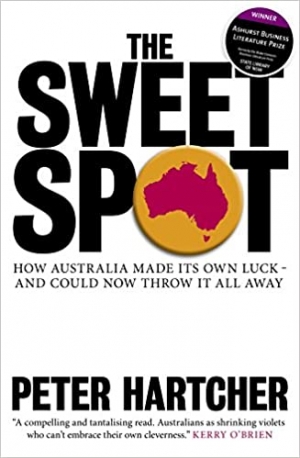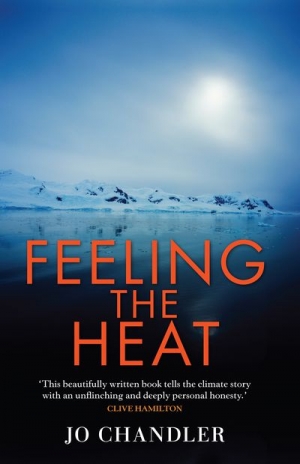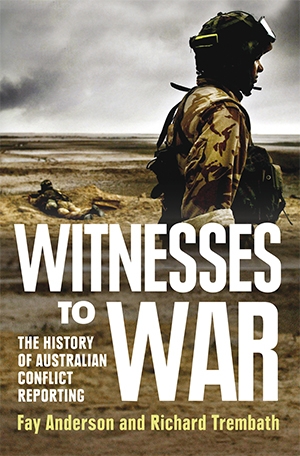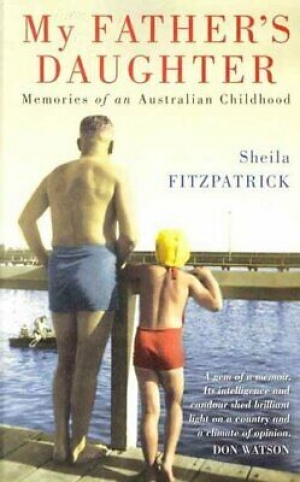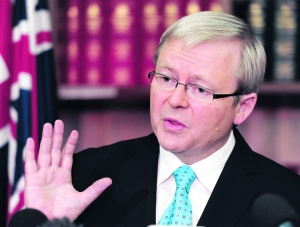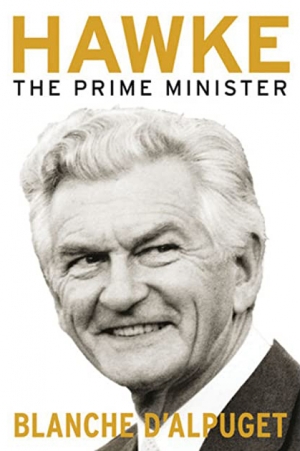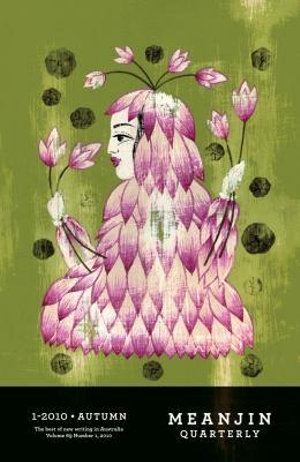Melbourne University Press
Joel Deane reviews 'The Sweet Spot: How Australia made its own luck – and could now throw it all away' by Peter Hartcher and 'The Fog On The Hill: How NSW Labor lost its way' by Frank Sartor
On 7 November, Paul Keating appeared on ABC TV’s 7.30 to promote his new book of speeches, After Words. Keating’s response to Leigh Sales’s first question about political leadership was instructive:
... (read more)Dean Biron reviews 'Meanjin Vol. 70, No. 3' edited by Sally Heath
As with all such collections, this issue of Meanjin mixes the inspired with the modest, the fascinating with the mediocre. That is of no consequence: in this fraught cultural age, all that matters is that journals like Meanjin survive and provide a forum for both established and aspiring writers.
... (read more)In Feeling the Heat, journalist and science writer Jo Chandler voyages to Antarctica (mostly), where she meets and talks with scientists about the meaning of their work. She reminds me of the eighteenth-century philosophical travellers, the first anthropologists who travelled to strange lands (Australia included) to observe the language and customs of savage peoples, and to learn from them. From ice field and coral reef, Chandler reports on the latest in climate science, as if meeting the inhabitants of a distant country where they do things differently.
... (read more)Jill Jolliffe reviews 'Witnesses to War: The History of Australian Conflict Reporting' by Fay Anderson and Richard Trembath
Witnesses to War, an ambitious book, is part of a larger project by the C.E.W. Bean Foundation to commemorate the work of Australian war correspondents. Fay Anderson and Richard Trembath, setting out to document the performance of Australian war correspondents, have tackled complex material. They deal with an enormous cast of characters and various interwoven themes, including the struggle against military censorship, how journalists have observed their duty to neutral coverage (or not), and the changing technology of reporting war – from sending stories by carrier pigeon or steamship in World War I to today’s live telecasts by journalists direct from battlefields in Iraq and Afghanistan. The book fills an important gap. Until now, Phillip Knightley’s more general work, The First Casualty: The War Correspondent as Hero and Myth-Maker (1975, 2004), has served as the final authority in this field. Knightley is a patron of the Foundation and an important influence.
... (read more)Get in line, Bruce. The world is full of those who have been done over by Rupert Murdoch. In the immortal words of George Cukor to an aggrieved actor: ‘Will you stop about being fired. Everybody’s been fired.’ So what makes Bruce Guthrie, sacked as Editor-in-Chief of the Herald Sun ...
... (read more)Joel Deane reviews 'Trivial Pursuit (Quarterly Essay 40)' by George Megalogenis and 'The Party Thieves' by Barrie Cassidy
Political writers are much like their sports-writing cousins. Most simply tell it as they see it, recounting the highs and lows of the game, the winners and losers, the statistics and scoreline. Some – courtesy of a flair for language, a well-stocked contacts book, or the perspective that comes from being a former player or a veteran observer ...
... (read more)Brenda Niall reviews 'My Father’s Daughter: Memories of an Australian childhood' by Sheila Fitzpatrick
Even the cover design of Sheila Fitzpatrick’s memoir gave me something to ponder. The title, which signals the father–daughter story, is linked with an engaging seaside photograph of the two of them. The father’s swimming trunks and the daughter’s bathing cap have an authentic 1940s look. Add to that a bland subtitle, Memories of an Australian Childhood, and the tough confrontations of the text may come as a surprise.
... (read more)The political assassination of Kevin Rudd will fascinate for a long time to come. As with Duncan’s murder in Shakespeare’s play it was done, as Lady Macbeth cautioned, under ‘the blanket of the dark’, literally the night of 23–24 June 2010. The assassins heeded Macbeth’s advice: ‘if it were done when ’tis done, then ’twere well it were done quickly.’ And as in Macbeth, the assassins were in the shadow of the throne. Even the old king approved: Bob Hawke, himself deposed in 1991, recognised at last that the removal of a Labor prime minister is sometimes necessary.
... (read more)Bruce Grant reviews 'Hawke: The prime minister' by Blanche d’Alpuget
Needless to say, yet needing to be said, Australia’s twenty-third prime minister, R.J.L. Hawke, emerges from this interesting, sometimes engrossing yet disconcerting book smelling like roses. When MUP decided to publish, it must have seemed like a good idea. Deployed on television, Bob and Blanche were a marketing dream. But the result has a fatal flaw; it neither enlarges Hawke as a political leader nor advances d’Alpuget as a writer.
... (read more)Jeffrey Poacher reviews 'Meanjin, Vol. 69, No. 1' edited by Sophie Cunningham
There is something to offend everyone in the latest issue of Meanjin. Several contributors boldly tackle religious questions – always plenty of kindling for the fire there. Jeff Sparrow takes on the so-called ‘New Atheists’, in the process throwing a few Marxist haymakers at Bush, Rudd and ‘the Israeli apartheid state’. The ‘religious undergirding’ of secular thought is considered by the Sydney academic John Potts, who finds that greenies, old-style lefties and post-structuralists are much closer to Messianic Christianity than they might think (along the way, he is snide about vegetarians, too). Elsewhere, Paul Mitchell contrasts the spiritual impulses at work in contemporary Australian fiction, though some of his assumptions are bound to get nonbelievers offside.
... (read more)
